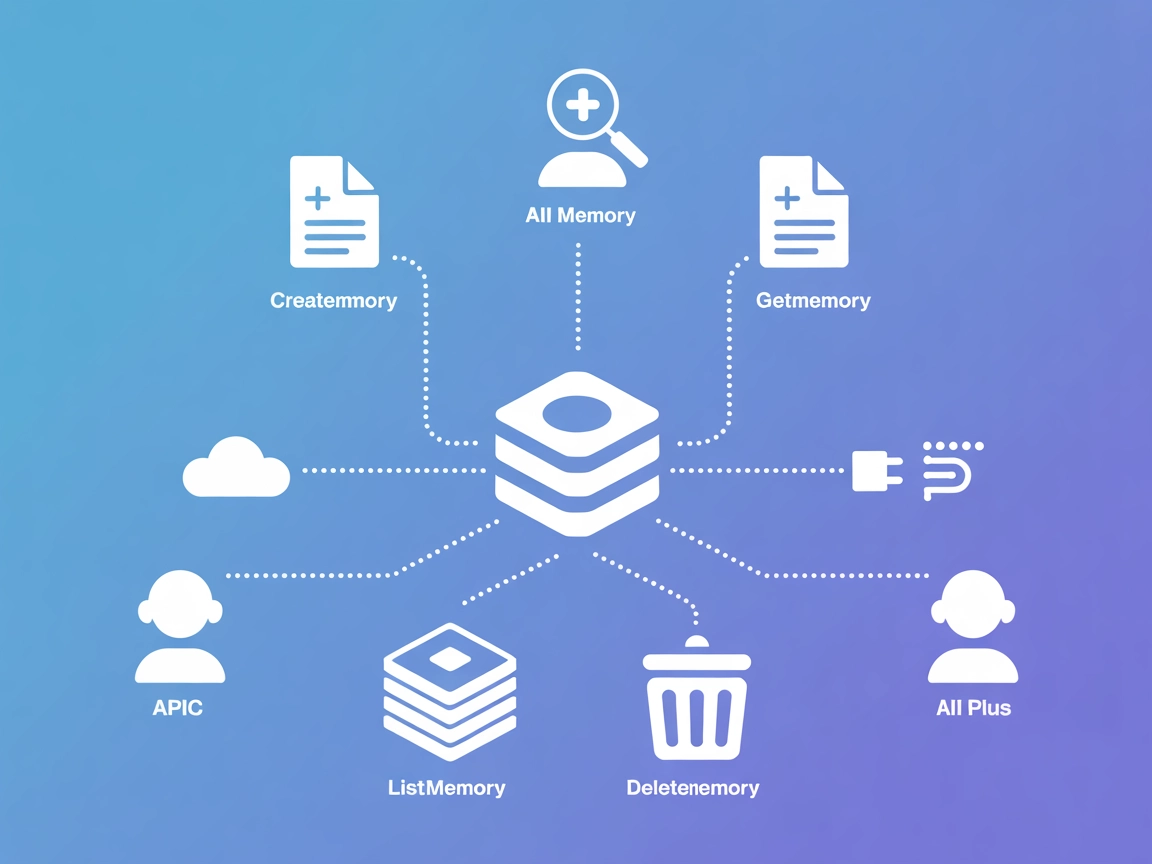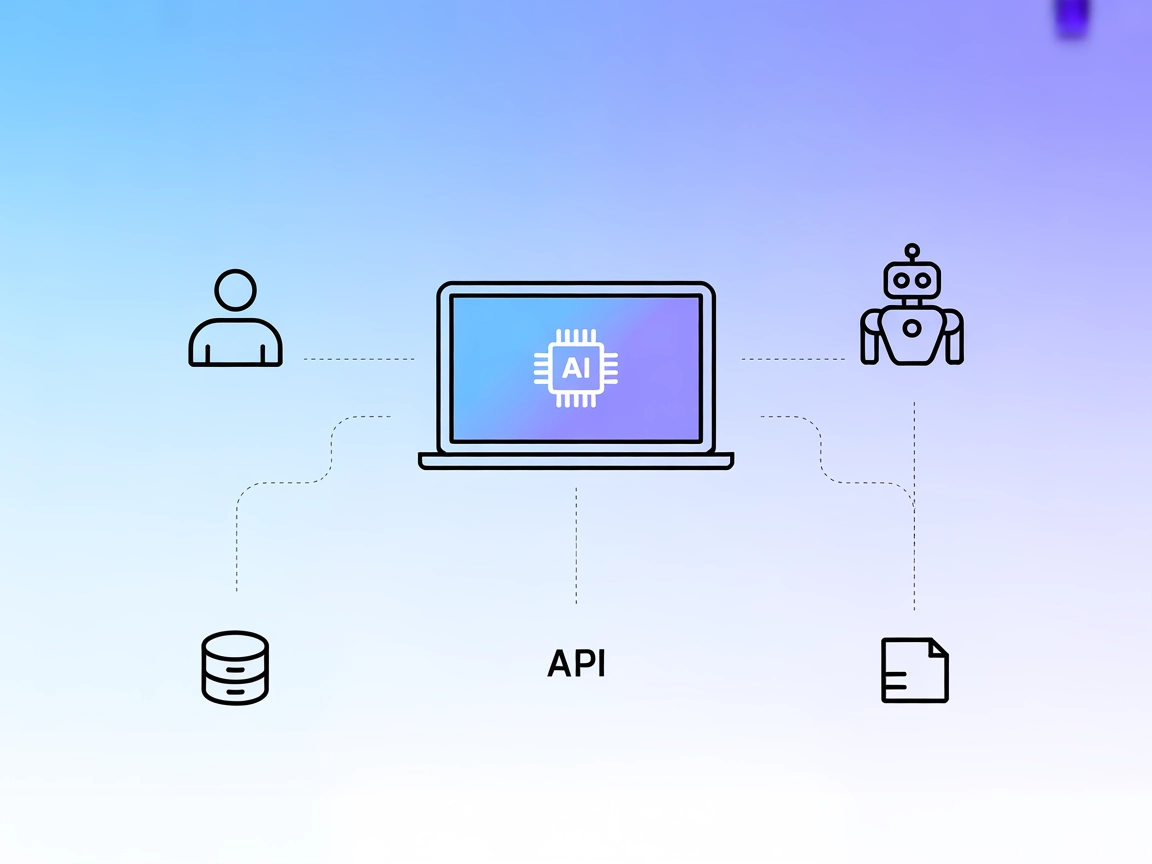
Model Context Protocol (MCP) Server
The Model Context Protocol (MCP) Server bridges AI assistants with external data sources, APIs, and services, enabling streamlined integration of complex workfl...

StitchAI MCP Server centralizes AI memory management, letting agents create, retrieve, and organize context-rich knowledge for enhanced, long-term reasoning.
FlowHunt provides an additional security layer between your internal systems and AI tools, giving you granular control over which tools are accessible from your MCP servers. MCP servers hosted in our infrastructure can be seamlessly integrated with FlowHunt's chatbot as well as popular AI platforms like ChatGPT, Claude, and various AI editors.
StitchAI MCP Server is a Model Context Protocol (MCP) server implementation designed to power Stitch AI’s memory management system. It acts as a decentralized knowledge hub for AI, enabling seamless connections between AI assistants and external data sources, APIs, and services. Through this server, AI agents can efficiently create, retrieve, and manage “memories”—structured pieces of information that enhance their contextual awareness and reasoning capabilities. By exposing a set of tools for memory operations, StitchAI MCP Server streamlines workflows such as storing insights, tracking contextual data, or retrieving relevant information. This empowers developers to build AI solutions that are more context-aware, interactive, and capable of sophisticated information handling.
No prompt templates were found in the available documentation or code.
No explicit MCP “resources” were found in the available documentation or code.
mcpServers section with the command and arguments.Example JSON:
{
"mcpServers": {
"stitchai-mcp": {
"command": "npx",
"args": ["@stitchai/mcp-server@latest"]
}
}
}
mcpServers.Example JSON:
{
"mcpServers": {
"stitchai-mcp": {
"command": "npx",
"args": ["@stitchai/mcp-server@latest"]
}
}
}
mcpServers object.Example JSON:
{
"mcpServers": {
"stitchai-mcp": {
"command": "npx",
"args": ["@stitchai/mcp-server@latest"]
}
}
}
mcpServers.Example JSON:
{
"mcpServers": {
"stitchai-mcp": {
"command": "npx",
"args": ["@stitchai/mcp-server@latest"]
}
}
}
Use environment variables to securely inject API keys or secrets into your MCP server configuration.
Example:
{
"mcpServers": {
"stitchai-mcp": {
"command": "npx",
"args": ["@stitchai/mcp-server@latest"],
"env": {
"API_KEY": "${API_KEY}"
},
"inputs": {
"api_key": "${API_KEY}"
}
}
}
}
Using MCP in FlowHunt
To integrate MCP servers into your FlowHunt workflow, start by adding the MCP component to your flow and connecting it to your AI agent:

Click on the MCP component to open the configuration panel. In the system MCP configuration section, insert your MCP server details using this JSON format:
{
"stitchai-mcp": {
"transport": "streamable_http",
"url": "https://yourmcpserver.example/pathtothemcp/url"
}
}
Once configured, the AI agent can now use this MCP as a tool with access to all its functions and capabilities. Remember to change “stitchai-mcp” to the actual name of your MCP server and replace the URL with your own MCP server URL.
| Section | Availability | Details/Notes |
|---|---|---|
| Overview | ✅ | |
| List of Prompts | ⛔ | None found in documentation or code |
| List of Resources | ⛔ | None found in documentation or code |
| List of Tools | ✅ | createMemory, getMemory, listMemories, deleteMemory |
| Securing API Keys | ✅ | .env.example present, usage shown above |
| Sampling Support (less important in evaluation) | ⛔ | No sampling support found |
StitchAI MCP Server provides a focused set of memory management tools and is easy to set up across platforms. However, the lack of clear resource and prompt definitions, as well as missing features like sampling and roots, limits its flexibility for broader MCP workflows. The project is new and has little community traction so far.
On a scale of 0 to 10, this MCP scores a 4 for core functionality and clarity, but lacks maturity, extensibility, and adoption.
| Has a LICENSE | ⛔ (No LICENSE file found) |
|---|---|
| Has at least one tool | ✅ |
| Number of Forks | 0 |
| Number of Stars | 0 |
StitchAI MCP Server is an implementation of the Model Context Protocol (MCP) focused on memory management for AI agents. It allows agents to create, retrieve, list, and delete structured 'memories,' enabling long-term context, collaborative knowledge, and enhanced reasoning.
StitchAI MCP Server provides four key tools: createMemory (store new memory), getMemory (retrieve memory by ID), listMemories (list all stored memories), and deleteMemory (remove a memory by ID).
The server enables long-term context management, persistent agent knowledge bases, collaborative multi-agent memory, data annotation, and efficient memory pruning—empowering advanced, context-aware AI workflows.
Use environment variables in your configuration to inject API keys or other secrets securely. Refer to the .env.example and sample JSON provided in the documentation for correct setup.
No. The current version does not provide explicit prompt or resource definitions, focusing instead on memory operations.
StitchAI MCP Server is a new project with limited community traction. It scores a 4 out of 10 for core functionality and clarity, but lacks extensibility and broad adoption at this stage.
Supercharge your AI agents with StitchAI's advanced memory tools. Build context-aware, collaborative AI solutions on FlowHunt today.

The Model Context Protocol (MCP) Server bridges AI assistants with external data sources, APIs, and services, enabling streamlined integration of complex workfl...

The ModelContextProtocol (MCP) Server acts as a bridge between AI agents and external data sources, APIs, and services, enabling FlowHunt users to build context...

The interactive-mcp MCP Server enables seamless, human-in-the-loop AI workflows by bridging AI agents with users and external systems. It supports cross-platfor...
Cookie Consent
We use cookies to enhance your browsing experience and analyze our traffic. See our privacy policy.